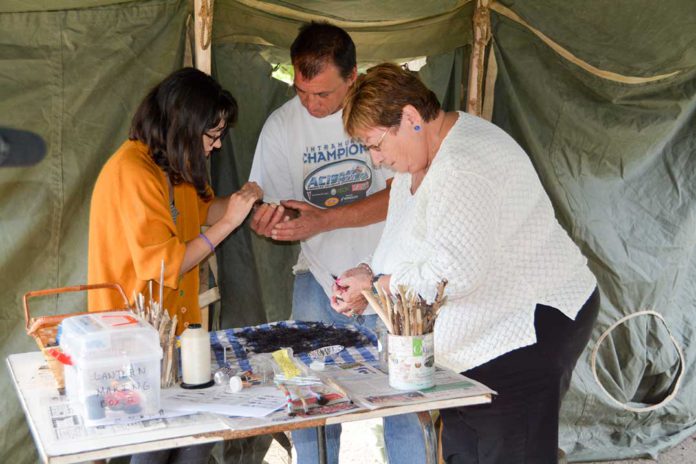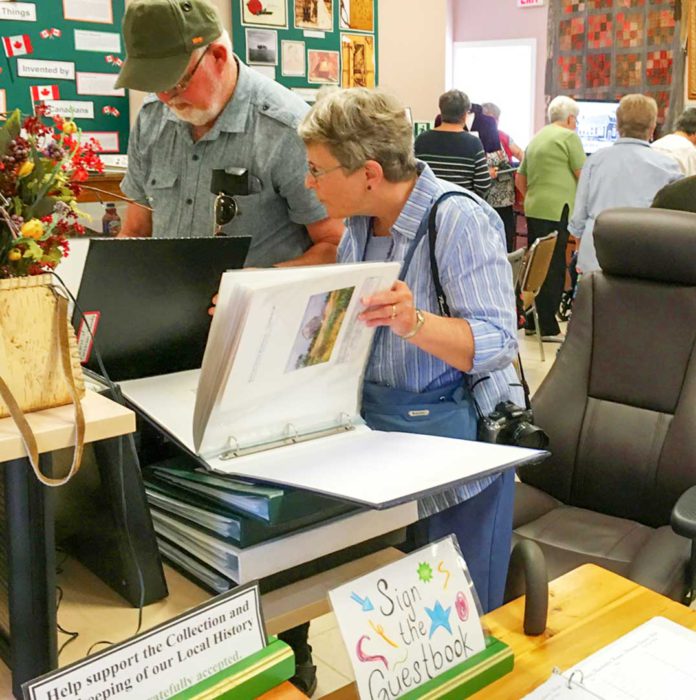It’s hard to answer two questions at once
To the Expositor:
It’s hard to ask two questions in the same sentence. For example, if someone asked you, “Do you like coffee and tea?” How do you respond? You could say, “Yes, I like both coffee and tea.” Or you could say, “I like coffee, but not tea.” Or you could say, “I like tea, but not coffee.” Or you could say, “I don’t like coffee or tea.” The problem with a question like this is it does not ask you what beverage you do like. Suppose you do not like coffee or tea. The question does not ask you, “Do you like a beverage other than coffee or tea?” Maybe you like milk and orange juice. Or maybe you like spring water and tomato juice. The possibilities are endless.
What if, for example you were asked a question like, “Do you approve the Anishinabek Nation Education Agreement and the Education Constitution?” The same type of problem presents itself. You could approve of the Anishinabek Nation Education Agreement but not the Education Constitution. Or you could disapprove the Anishinabek Nation Education Agreement, but approve the Education Constitution. What if you do not approve of either? Oh, of course, you could vote no. But then what are you voting no to? There are two questions contained in the same sentence. That is the dilemma that faces Anishinaabe voters who will vote on the Anishinabek Nation Education Agreement and the Education Constitution between November 28 and December 2, 2016.
Dig a little deeper. What does the Anishinabek Nation Education Agreement say? Well, there are some troubling parts to it. For example, the agreement says that the agreement is not a treaty. Well, what is a treaty but an agreement? And, haven’t both the federal and provincial governments acknowledged that First Nations are nations?
Then, the agreement goes on to say that the effective date will be decided by the federal government. Doesn’t an agreement mean that both parties agree to an effective date? If an effective date is dictated by one party over another, it is not an agreement.
The agreement also talks about primary, elementary, and secondary education. Aren’t primary and elementary the same thing? And what nation in its right mind will not make laws about tertiary (post-secondary) education? Consider this. Statistics Canada stated that in Canada in 2009, 82 percent of the adult population between 25 to 64 years of age with a post-secondary education were employed, compared with 55 percent of the same age group with less than a high school education. And, James Knight, the President of the Association of Canadian Community Colleges stated that nearly 75 percent of jobs now being created in Ontario require a post-secondary education, and that only 58 percent of the population has a post-secondary education. Human Resources and Skills Development Canada indicates that 70 percent of new jobs created in the coming decade will require post-secondary education. A CIBC report stated that most jobs in high demand require a university degree. Then, add to the mix the fact that more than 560,000 indigenous people are less than 25-years-old across Canada. Only eight percent of indigenous people aged 25 to 64 in Canada have a university degree, in contrast to 23 percent of non-indigenous people in the same age group who have a university degree. The Anishinabek Nation Education Agreement states that post-secondary education is to be administered by First Nations as before. And we all know how excruciatingly under-funded post-secondary education for indigenous peoples are. So, why is post-secondary education not included in the agreement?
How about this one? First Nations are required to pass a constitution before being allowed to implement the Education Agreement. Why haven’t First Nations passed their own constitutions long before any noises were made about education agreements? Aren’t we putting the cart before the horse by requiring a constitution before entering an education agreement? Shouldn’t the sound foundation of a constitution be hammered out within each First Nation before entering an agreement with a foreign entity?
When the British treaty commissioners negotiated with the chiefs in pre-Confederation times, it was on a nation-to-nation basis. The treaties enshrined the Crown’s fiduciary obligations towards “Indians and lands reserved for Indians.” An obligation is an obligation, it is not an item that can be dispensed with once it becomes inconvenient for one party, i.e., the Crown. So the fact that the Anishinabek Nation Education Agreement states that “Canada’s fiduciary obligation may change over time,” smacks of allowing Canada to dispense with its statutory obligation.
Another part of the agreement talks about protecting the information privacy of the parties. Well, and good. But how about Anishinaabek protecting our own intellectual property? No mention of that in the agreement.
Quality Anishinaabe education ranks up there with the respect that should be accorded to Mother Earth, protection of our fresh water, and apple pie. If Anishinaabe education is so important, we should proceed with the utmost care, and with as much foresight as we can muster so as to provide for seven generations into the future. We should proceed with the thoroughness, completeness, and comprehensiveness that is required if indigenous peoples are going to care for our homelands as we have been designed to do. Entering agreements with unsound construct development that appear as wonky questions, allowing ourselves to be dictated to, and allowing weasel phrases like “fiduciary obligations may change over time” is not the way to exercise future-seeing.
Marie McGregor Pitawanakwat
Whitefish River First Nation




